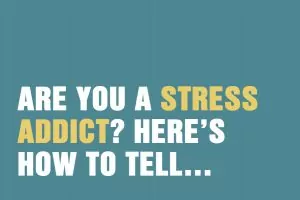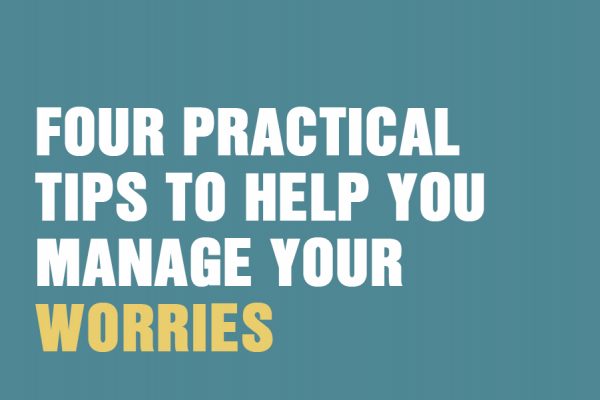Do you sometimes think that life is more difficult for you than others and that you “feel too much” or “take things too hard”? If so, you could be a Highly Sensitive Person (HSP). This is not merely a descriptive phrase, HSP is an actual diagnosis, although having said, high sensitivity is a trait, it’s not a disorder. This is to say it is not an illness, and it may feel like a blessing or like a burden depending on what sort of day you are having.
It is not that uncommon either. Recent research at the Queen Mary University of London indicates that it’s an inbuilt biologically-based characteristic carried by around 15-20% of the population.
Being an HSP means that you experience the world differently to others and that you process information very deeply. Everyone can find it difficult to watch a news bulletin sometimes, but HSPs find that newsfeeds do not just give them pause for thought and sadden them, but actually make it difficult for them to continue their day because they are so affected by the stories they have heard or scenes they have witnessed. They can also find sudden loud noises and bright lights overwhelming.
The positives in being HSP are that, on the whole, you are a very creative, insightful and empathic bunch of people. But it is this capacity for understanding, insight and empathy that can cause stress and overwhelm you. The dictionary definition of empathy is that it means you are able to imagine and understand the feelings of others. However, empathy in an HSP exceeds this definition and you can find yourself actually experiencing and feeling for yourself the emotions of others. Obviously this can be draining.
Due to their heightened empathy HSPs can be drawn to the caring professions and/or to being caregivers within their relationships and families. Obviously the ability to understand the feeling of others is an asset in these roles, but it can also lead to emotional overload, burnout and exhaustion.
14 signs that you might be a highly sensitive person
1. Every day is like Hallowe’en
If someone brushes past you accidentally, makes a loud noise or deliberately sneaks up on you, you jump-scare as if you’ve seen a ghost or a zombie or are in real danger. Many HSPs have a high “startle reflex” and even non-threatening situations can cause you to be on full scream alert.
2. You cannot watch news bulletins or horror movies
No one welcomes hearing about violence and cruelty, and almost everyone finds it upsetting, but for highly sensitive people, it can be derailing. If you cannot stomach news stories about cruelty to people or animals or tolerate TV shows or films depicting violence without getting upset to the point of feeling physically ill then you might be an HSP.
3. You are easily transported by beauty.
The scent of an exotic flower, a fine painting, a stirring piece of music or a particularly good meal can move you very deeply. You may find the effect of art or beauty puts you in a dreamy, trance-like state, or watching a field of poppies in sunshine moves you almost to tears.
4. You feel emotionally drained every day
To walk into a room is to instantly pick up the moods of others. Highly sensitive people are very aware of body language, facial expressions, body language, tone of voice — the signs of emotions that most people miss. This, combined with your natural aptitude to empathy, makes it very likely that you will experience emotions that do not belong to you, leading you to feel emotionally exhausted almost all of the time.
5. Time is pressure
You constantly feel as if life is a speed test or you are in an exam with a set time limit. At times when you are busy and have a lot of things on your to-do list and not enough time to finish them, you get very stressed, sometimes to the point of not being able to do things as well as you normally would.
6. You need a withdrawing room
You need a lot of time on your own to process things and if you don’t get this you can feel very anxious. You often find yourself wanting to hide away in a quiet room on your own at the end of a long day
7. Nobody understands
You feel very misunderstood by the world. People call you “shy”, “anxious” or “introverted” and you feel they are saying something is wrong with you. Also many HSPs are extroverts, but you just need a lot of downtime, which is often confused with introversion.
8. Deep thought is your default mode
You reflect on life much more than other people and process information in a deep way. This can lead to negative overthinking. At times you obsessively play events over and over in your mind and can spiral into anxious loops of thought.
9. You’re always looking for answers
You are constantly seeking to solve the big questions in life. You want to know why things are the way they are and what you have done to cause your life to be like this. You are constantly surprised to find that other people don’t think like this.
10. You are sensitive to your surroundings
You’ve always been easily irritated by clothes that feel itchy and scratchy and you hate it when things feel too tight. The experience of wearing clothing that you find uncomfortable can be so distracting you find it hard to ‘act normal’. Also being in a new place, an office setting or a holiday home, can feel very difficult, because your senses are bombarded with a lot of new stimuli.
11. You have a very low pain threshold
You have frequent headaches and experience pain of all kinds more frequently than other people.
12. Routine is your ruler
Change, however positive or welcome, can feel seriously threatening. So if you have a new partner or get promotion this can feel as anxiety-provoking and difficult as it does happy and exciting. You may need more time than most to adjust to new things in your life.
13. Criticism cuts deep
Words really are sticks and stones to an HSP and can hurt very much. Criticism can feel like ‘being stabbed’, and any hint of negativity in a comment feels highly toxic and damaging.
14. You are a peacemaker par excellence
If there is any hint of tension or conflict with your nearest and dearest, you feel it deeply to the point of feeling physical pain or that you are going to faint or vomit. As a result you can become extremely conflict-avoidant, so that you will do or say almost anything to keep the other person happy and the conflict at bay.
What can you do to reduce the affects of being a highly sensitive person?
While it might sound simplistic you need to take care to protect yourself from carrying emotional burdens, especially those that belong more rightly to others.
One way of doing this is to try to think around a whole problem rather than letting yourself get into the anxious thinking loop. So instead of starting to worry why something’s gone wrong and second-guess the ways in which it might go further wrong, try to think about how this situation might be resolved. How can you work towards getting resolution to this?
Another way is to practise letting go a bit more often. This will enable you to see that you are beginning to worry about all the possible negative outcomes, and instead to allow yourself to wait and see what emerges. If you can let go a bit more you can then react spontaneously to any emotions arising rather than let them wear you down.
Using creativity as an outlet can really help. One of my clients with HSP described it as, “having an extra RAM on my personal hard drive.” And for her being able to express herself creatively acted as a very helpful pressure valve.
Mindfulness and self-care strategies can also really help. So make sure you do give yourself enough time to decompress after the pressures of a day. The more you can do to reduce stress, the more of your emotional energy you’ll have left for the things that really matter to you.
If you would like to talk to a qualified professional about high sensitivity in a safe, non-judgmental environment, call 020 8673 4545 or email [email protected] and the Front of House team will book an appointment with one of our therapists. We have centres in Clapham and Tooting.







